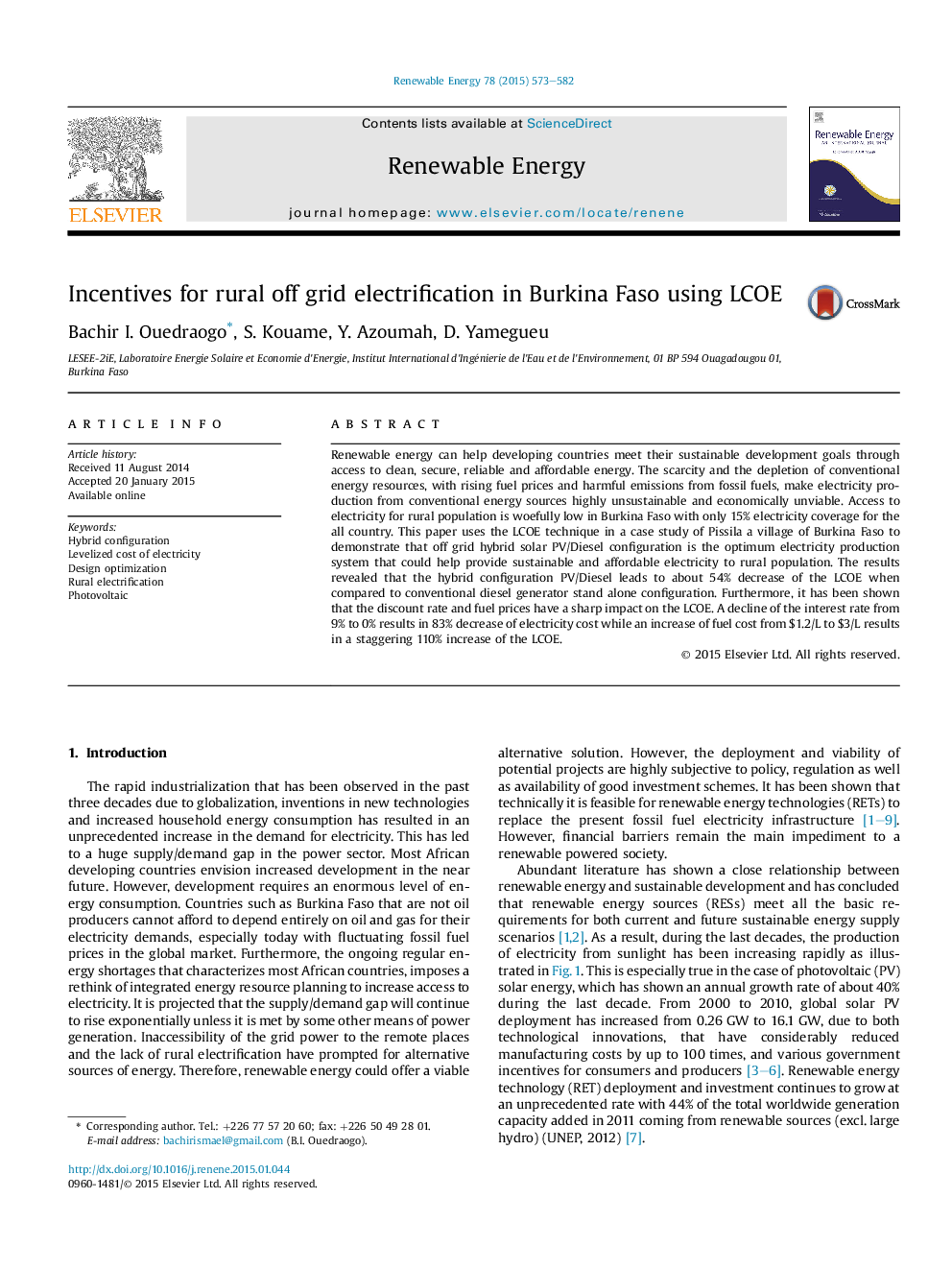| Article ID | Journal | Published Year | Pages | File Type |
|---|---|---|---|---|
| 6767621 | Renewable Energy | 2015 | 10 Pages |
Abstract
Renewable energy can help developing countries meet their sustainable development goals through access to clean, secure, reliable and affordable energy. The scarcity and the depletion of conventional energy resources, with rising fuel prices and harmful emissions from fossil fuels, make electricity production from conventional energy sources highly unsustainable and economically unviable. Access to electricity for rural population is woefully low in Burkina Faso with only 15% electricity coverage for the all country. This paper uses the LCOE technique in a case study of Pissila a village of Burkina Faso to demonstrate that off grid hybrid solar PV/Diesel configuration is the optimum electricity production system that could help provide sustainable and affordable electricity to rural population. The results revealed that the hybrid configuration PV/Diesel leads to about 54% decrease of the LCOE when compared to conventional diesel generator stand alone configuration. Furthermore, it has been shown that the discount rate and fuel prices have a sharp impact on the LCOE. A decline of the interest rate from 9% to 0% results in 83% decrease of electricity cost while an increase of fuel cost from $1.2/L to $3/L results in a staggering 110% increase of the LCOE.
Keywords
Related Topics
Physical Sciences and Engineering
Energy
Renewable Energy, Sustainability and the Environment
Authors
Bachir I. Ouedraogo, S. Kouame, Y. Azoumah, D. Yamegueu,
